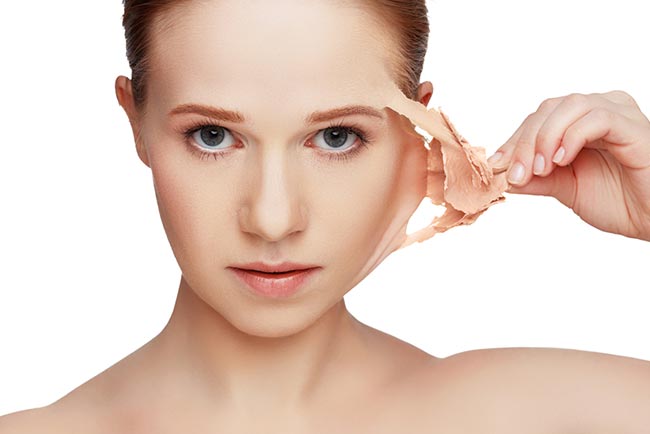Skin peeling is also known as desquamation and occurs when the skin starts losing its outermost layer commonly referred to as epidermis. Peeling of the skin can be influenced by direct skin damage or various other conditions, disorders and diseases. It can affect a small portion of your skin or even the entire body. Also, it can occur to people in different populations and age groups. Here are the Top 5 things peeling skin tell you about your body.
1. Skin peeling tells you that your body is affected by sunburns
One of the main reasons behind skin peeling is sunburn. According to experts, the ultraviolet sun rays negatively affect the skin by killing of its cells. This manifests as peeling of the skin because most of the body’s cells have been damaged. According to Joshua Zeichner, an M.D. and the cosmetic and clinical research director at a leading New York City medical center, when peeling of skin happens, the skin’s dead cells tend to be sloughed off. This tends to appear on the surface of the skin in a peeling form, and this allows new skin cells to replace the dead cells. He recommends the best way to stay away from sunburn is to apply sunscreen every day. He advises people to consider buying sunscreens that have SPF of at least 30. These sunscreens are able to block up-to 97% of UVB rays, which are known to cause skin redness and sunburn.
2. Skin peeling may indicate that your body is negatively affected by certain medications
Some medications including retinoid products that treat wrinkles and acne can bring about peeling of the skin. You might start noticing flaking around the mouth area and the nose. If you notice this, consider inquiring from your doctor whether you should minimize your daily application to make your skin adapted and more tolerant to your medication. Additionally, when applying retinoid gels or creams, make sure you don’t apply on sensitive skin areas such as around the eyes and the nose.
Additionally, some topical medications such as salicylic acid, sulfa and benzoyl peroxide might bring about dry skin, which eventually leads to flaking and peeling. If your skin is easily agitated, don’t use products that have either of these ingredients. Instead, consider going for lightweight cleansers and oil-free moisturizers.
3. Peeling skin implies dry skin
Peeling of skin means that your skin is dry. This happens because your skin cells are not in a position to smoothly stick together. Although cold temperatures are mostly seen as the major causes of dry skin, other factors may as well cause your skin to peel. According to professionals, living in a low-humid area can bring about moisture loss leaving your skin dry. Additionally, harsh soaps have been shown to cause skin dryness.
Experts recommend ensuring that your skin stays hydrated all the time. You can achieve a hydrated skin by using moisturizers that are specially created for your type of skin. Similarly, consider using gentle cleansers that do not remove your skin’s natural oils. You may also want to drink lots of water to help with your hydration.
4. Underlying skin conditions
Some underlying conditions such as eczema and seborrheic dermatitis might cause your skin to start peeling off. The two are chronic inflammatory conditions of the skin and lack a known cure. However, it is possible to control the symptoms using proper moisturization techniques.
Doctors recommend avoiding washing the face with hot water to avoid skin irritation. Instead, people should consider using lukewarm water together with gentle cleansers that do not have harsh chemicals and fragrances. This helps maintain the natural moisture barrier of the skin. Once cleansing is complete, make sure you dry the skin by patting with a dry towel.
5. Allergies
Peeling of skin might also imply an allergic reaction as a result of using certain ingredients in hair products, nail polish, skin-care products or cosmetics. Usually, allergic reactions are followed by other symptoms including itching and skin redness. To establish the ingredients behind your allergic reaction, consider consulting your dermatologist. The professional will help you determine the exact ingredient your body is allergic to by properly testing the potential allergies. Once you are aware of the ingredient, your body is allergic to; make sure you begin choosing your skin care products diligently by reading the ingredients section before buying.
Conclusion
Peeling skin can occur to anyone at any developmental stage. Usually, the condition is an indication of an underlying problem that needs immediate medical attention. To deal with your peeling skin condition, make sure you inform your health provider immediately you notice something odd.
